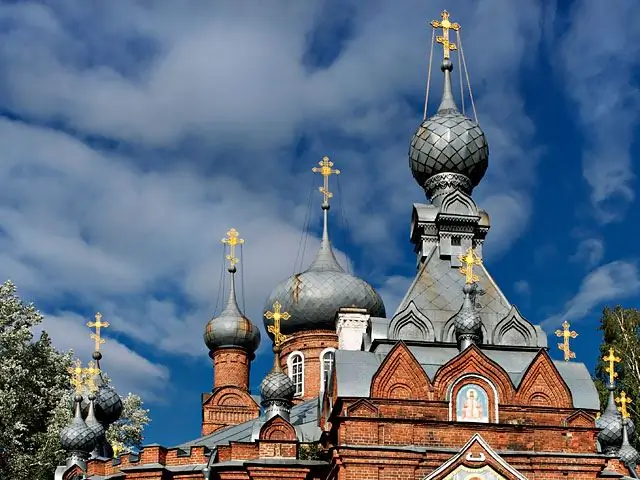- Author Antonio Harrison [email protected].
- Public 2023-12-16 07:44.
- Last modified 2025-01-22 21:44.
Church New Years in modern times is called the beginning of the liturgical year. In the Orthodox Church, there is a certain holiday called the Beginning of the Indict (this is the Church New Year). According to the modern calendar, this day falls on September 14th. Accordingly, the old style of celebrating this date is September 1st. Earlier, when the Church was not separated from the state, in Russia the New Year itself was celebrated on September 1.

The liturgical year of Orthodox Christians begins in the fall. This tradition corresponds to both liturgical and calendar Old Testament practice. On the first day of September, during the Divine Liturgy, an excerpt from the Gospel is read about the preaching of Jesus Christ in the synagogue of Nazareth. The text of the Gospel tells that Christ, having opened the book of the prophet Isaiah, read to the audience the words about the anointed one, whose purpose was to preach salvation. It is under the sign of this prophecy that the Church New Year stands.
The Moscow Cathedral of 1492 decided to start counting the chronology in Russia from September 1 instead of March 1. The very same date of September 1 (as the beginning of the year) became official far beyond the borders of Russia and in more ancient times. So, the beginning of the new chronology on the first day of autumn was laid by the emperor Constantine the Great, having won a victory over Maxentius on September 1, 312. After this date, Christians were given freedom to practice their faith. The fathers of the First Ecumenical Council, held in Nicaea in 325, in memory of this event, decided to celebrate the New Year on September 1 - this was the day of freedom for Christians.
Historically, in Russia, the New Year was celebrated on September 1 until 1699. In 1699, Peter the Great issued a decree postponing the New Year to January 1. However, in the church service, the succession of the new summer (year) is still listed under the 1st September (according to the old style). According to the new style, this date falls on September 14th.
Since the 4th century, the entire liturgical (liturgical) life of the Church is inextricably linked with the Julian church calendar. This calendar is still adhered to by the Russian Orthodox Church, the monasteries of Athos, the Orthodox Churches of Georgia, Jerusalem, Serbia, and partly Bulgaria.






